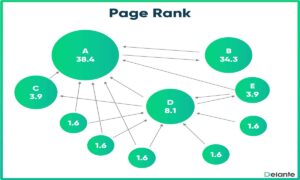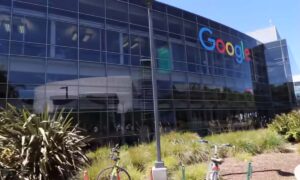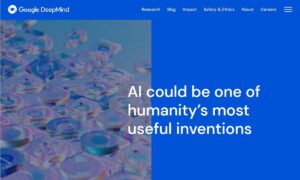From Visionary to Billionaire: Exploring Larry Page’s Net Worth, Biography, and Remarkable Accomplishments
Synopsis
- Larry Page stepped down as CEO of Alphabet Inc., the parent company of Google, in 2019 but remains a board member and a controlling shareholder of Alphabet.
- He is an American business magnate, computer scientist & an internet entrepreneur.
- He is most famous for Co-founding Google in 1998 with Ph.D. fellow Sergey Brin.
- He has co-invented PageRank, Google’s proprietary algorithm in its early years.
Today we will find out together who is Larry Page, exactly? What did he accomplish? Why we want to know about his extraordinary entrepreneur and highly intellectual capabilities to found the most influential companies of our time? We will also talk about his personal and family life? We’ll be communicating more on these in the sections below to come.
Who Is Larry Page?
Larry Page is the co-founder of Google alongside fellow business magnate, entrepreneur, and computer scientist Sergey Brin in 1998. Page was self pronounced CEO of Google until 2001, when they hired Eric Schmidt to take over as CEO of Google in 2001.
He again took over as CEO of Google in 2011 when Eric Schmidt stepped down. He at that time then restructured and streamlined the Google’s managerial, operational & core businesses. His role as CEO of Google ended in 2015, when he stepped down and became CEO of Google’s newly established parent company Alphabet Inc.
In Alphabet his main role is to focus on “moonshot” projects alongside overseeing other subsidiaries of Alphabet and Google’s core business operations.
Larry Page Google’s Co-founder Early Life
Larry Page, born Lawrence Edward Page on March 26, 1973, is an American computer scientist and an internet entrepreneur. He is best known as one of the co-founders of Google. Here is some information about Larry Page’s early life:
- Birth and Family Background: Larry Page was born in East Lansing, Michigan, to parents Gloria and Carl Victor Page Sr. His father earned a PhD in computer science from University of Michigan, and was a computer science professor at Michigan State University. His mother Gloria was an instructor in computer programming at Michigan State University’s Lyman Briggs College. According to BBC reporter Will Smale his father was known for his expertise in computer science and artificial intelligence.
- Early Interest in Computers: Page developed an interest in technology from an early age. He was introduced to first-generation of computers by his father, who taught him computer programming when he was just six years old. He became the “first kid in his elementary school to turn in an assignment from a word processor”. Page said that “from a very early age, I also realized I wanted to invent things. So I became interested in technology and business. Probably from when I was 12, I knew I was going to start a company eventually. This early exposure to technology played a significant role in shaping his future career.
- Early interest in reading: During an interview, Page recalled his childhood home “was usually a mess, with computers, science, and technology magazines and Popular Science magazines all over the place”, an environment in which he immersed himself. Page was an avid reader during his youth, writing in his 2013 Google founders letter: “I remember spending a huge amount of time pouring over books and magazines”.
- Early interaction with music: Page also played instruments and studied music composition while growing up. His parents sent him to music summer camp – Interlochen Arts Camp at Interlochen, Michigan. Page has mentioned that this musical education inspired his impatience and obsession with speed in computing. Page said “In some sense, I feel like music training led to the high-speed legacy of Google for me”.
Larry Page’s Education and Early Career
- Education: Page attended East Lansing High School, where he excelled academically. He was the co-valedictorian of his graduating class in 1991. After high school, he went on to study computer engineering at the University of Michigan.
- Stanford University: In 1995, Page received a Bachelor of Science degree in computer engineering from the University of Michigan. He then pursued a Ph.D. in computer science at Stanford University, where he met Sergey Brin, who would later become his co-founder at Google.
- Collaboration with Sergey Brin: During their time at Stanford, Page and Brin collaborated on a research project that focused on exploring the mathematical properties of the World Wide Web. This project eventually led to the development of the PageRank algorithm, which became the foundation of Google’s search engine.
- Creation of Google: Larry Page and Sergey Brin officially launched Google in September 1998 while they were still Ph.D. students at Stanford University. They initially operated Google from a garage in Menlo Park, California. The search engine gained popularity rapidly due to its efficient and accurate search results, leading to the company’s immense success.
- Google’s Growth: Under Page’s leadership as CEO, Google expanded its offerings beyond search and developed various products and services, including Gmail, Google Maps, Google Drive, and the Android operating system. He played a crucial role in shaping Google’s culture and promoting innovation within the company.
Larry Page’s early life laid the foundation for his remarkable journey as an entrepreneur and a visionary in the field of technology. His innovative ideas and leadership skills played a significant role in the growth of Google and its transformation into one of the world’s most influential technology companies.
Larry Page’s Research Project at Stanford University

- PageRank Algorithm: Page and Brin’s research project resulted in the creation of the PageRank algorithm, which was named after Larry Page. The algorithm aimed to measure the importance of web pages based on the quantity and quality of links pointing to them. It assigned a numerical value, known as PageRank, to each web page, effectively ranking their relevance in search results.
- Backrub: Before the project evolved into Google, Page and Brin initially named their search engine “Backrub.” Backrub analyzed the backlinks (links pointing to a particular webpage) as a way to determine the importance and relevance of a page. This concept formed the basis of the PageRank algorithm.
- Scaling Up of PageRank Algorithm: As their research progressed, Page and Brin realized the potential impact of their work on web search. They sought to improve the efficiency and accuracy of search engines by utilizing the PageRank algorithm. This led them to develop a comprehensive search engine that indexed web pages and provided highly relevant search results.
- Collaboration and Stanford’s Support: Page and Brin collaborated closely during their time at Stanford, leveraging their complementary skills and knowledge. Their research project was supported by Stanford’s Digital Libraries Project, and they received guidance from their advisor, Professor Terry Winograd.
- PageRank research Publication: Page and Brin published a research paper titled “The Anatomy of a Large-Scale Hypertextual Web Search Engine” in 1998, detailing the concepts and methodology behind the PageRank algorithm. This paper outlined the principles that later formed the basis of Google’s search technology.

The research project conducted by Larry Page and Sergey Brin at Stanford University marked a significant milestone in the development of Google. Their innovative approach to analyzing the web’s link structure and the creation of the PageRank algorithm laid the groundwork for Google’s search engine, which revolutionized the way information is discovered and accessed on the internet.
From Co-founder to CEO: Larry Page’s Leadership at Google

Larry Page’s transition from co-founder to CEO marked a significant phase in Google’s evolution. As CEO, Page provided strategic direction, led key initiatives, and made important decisions that shaped the company’s growth and success. Here are some key aspects of Larry Page’s leadership at Google:
- Return as CEO: Larry Page took on the role of CEO in April 2011, replacing Eric Schmidt, who had been leading Google since 2001. Page’s return as CEO marked a shift in leadership and signaled his intention to take a more active role in guiding the company’s future.
- Streamlining and Focus: One of Page’s primary objectives was to streamline Google’s operations and focus on core areas of strength. He initiated various initiatives to optimize efficiency, eliminate redundancies, and prioritize projects with the most significant potential for growth and impact.
- Emphasis on Moonshot Projects: Page encouraged and championed ambitious and innovative projects, known as “moonshots.” These projects aimed to tackle significant challenges and push the boundaries of technology. Examples include Google Fiber, Nest (makes smart home products), the spoon (allows people suffering from tremors due to Parkinson’s Disease to eat without spilling their food). Google’s self-driving car initiative (later spun off into Waymo) and Google X, a research lab focused on breakthrough innovations.
- User Experience and Design: Page placed a strong emphasis on user experience and design. He advocated for simplicity, clean interfaces, and intuitive user experiences across Google’s products and services. This focus on user-centric design contributed to Google’s success and helped solidify its position as a leader in user-friendly technology.
- Mobile and Android: Recognizing the growing importance of mobile technology, Page prioritized Google’s efforts in the mobile space. He played a key role in the acquisition of Android Inc. in 2005, which led to the development of the Android operating system. Under his leadership, Android became the dominant mobile operating system globally.
- Continued Innovation: Page fostered a culture of innovation within Google, encouraging employees to explore new ideas and take calculated risks. He believed in the power of technological advancements to drive positive change and transform industries. This culture of innovation contributed to Google’s ongoing development of new products and services.
- Transition to Alphabet: In 2015, Page oversaw the restructuring of Google, resulting in the creation of Alphabet Inc. as a parent company. Page became the CEO of Alphabet, while Sundar Pichai took over as the CEO of Google. This reorganization allowed for greater focus on core businesses and provided more flexibility to pursue diverse ventures under Alphabet.
Larry Page’s leadership at Google was marked by his strategic vision, focus on innovation, and commitment to enhancing user experiences. His efforts helped shape Google’s trajectory as a technology powerhouse and paved the way for future advancements in various fields, cementing the company’s position as a global leader.
Larry Page’s Leadership Role at Alphabet

Larry Page’s Leadership at Alphabet: Transforming Innovation and Diversification
Larry Page, as the co-founder of Google and subsequent CEO of Alphabet Inc., has made a profound impact on the company’s leadership and direction. Under his guidance, Alphabet has thrived as a conglomerate of diverse businesses, each with its own focus and potential for innovation. Let’s delve into Larry Page’s leadership at Alphabet and the transformative changes he has brought about.
- Vision for Alphabet: When Alphabet was formed in 2015, Page assumed the role of CEO, overseeing the entire conglomerate. He redefined Alphabet’s mission, envisioning it as a collection of forward-thinking companies, aiming to tackle ambitious projects and bring groundbreaking technologies to life.
- Strategic Focus: Page’s leadership has emphasized the importance of long-term thinking and moonshot projects. He encouraged Alphabet’s subsidiary companies, such as Waymo, Verily, and DeepMind, to pursue ambitious goals that push the boundaries of technology, focusing on areas like autonomous vehicles, healthcare, and artificial intelligence.
- Organizational Structure: Under Page’s leadership, Alphabet introduced a more decentralized structure, allowing its subsidiaries to operate with more autonomy. This approach provided each company the flexibility to innovate and grow while leveraging the resources and support from Alphabet as a whole.
- Emphasis on Innovation: Page’s passion for innovation is evident in Alphabet’s culture. He fosters an environment that encourages out-of-the-box thinking, taking risks, and investing in groundbreaking research and development. This has led to pioneering projects like Google Brain, Project Loon, and advancements in machine learning.
- Sustainability and Social Impact: Page has shown a commitment to addressing environmental challenges and making a positive social impact. Alphabet has invested in renewable energy projects and initiatives to reduce the company’s carbon footprint. Through initiatives like Google.org, Page has supported numerous philanthropic endeavors and leveraged technology to tackle global issues.
- Transition to Alphabet CEO Emeritus: In December 2019, Larry Page stepped down as the CEO of Alphabet, assuming the role of Alphabet CEO Emeritus. While he is no longer directly involved in day-to-day operations, his influence and strategic guidance continue to shape the company’s direction.



Larry Page’s leadership at Alphabet has been marked by his visionary thinking, focus on innovation, and a commitment to pushing the boundaries of technology. Under his guidance, Alphabet has grown into a conglomerate of diverse companies, each contributing to the advancement of industries and the improvement of lives. Page’s legacy will undoubtedly continue to inspire future generations of innovators and entrepreneurs.
Larry Page’s Net Worth
According to the latest World’s Billionaires List from Forbes Magazine and Forbes online website, Larry Page’s net worth is $104.6 Billion as of June 23, 2023. After Elon Musk, Bernard Arnault, Jeff Bezos, Larry Ellison, Bill Gates, & Warren Buffet, Page just sits at #7 most richest people on the planet.
As with several of the world’s richest tech billionaires, Page’s net worth has more than doubled since the onset of Covid-19. This is due to an increased amount of online activity due to lockdowns all over the world. His total net worth has risen from $50.8 billion in 2019 to more than $104.6 billion today.
Marriage of Larry Page
Larry Page was married to Lucinda “Lucy” Southworth. Lucinda Southworth is the sister of British actress and model Carrie Southworth. Lucinda Southworth is a research scientist, an entrepreneur and philanthropist.
The couple got engaged in 2006 and tied the knot in a private ceremony in 2007 on Necker Island, which is owned by Sir Richard Branson. After getting married they have a home together in Palo Alto, California.
Children of Larry Page
Larry Page and Lucinda Southworth have two children together, born in 2009 and 2011. However, as the couple prefers to keep their personal life private, not much information is publicly available about their children, including their names or specific details about them. Larry Page and Lucinda Southworth have maintained a low profile when it comes to their family life, and they have made efforts to keep their children out of the public eye.
Awards and Accomplishments of Larry Page
- Global Leader for Tomorrow, World Economic Forum (2002)
- Entrepreneur of the Year, EY (2003)
- Fellow of Marconi Foundation, Marconi Foundation, Colombia University (2004)
- Golden Plate Award, American Academy of Achievement (2004)
- Elected Fellow, American Academy of Arts and Sciences (2005)
- Honorary Doctorate, University of Michigan (2009)
- Page named “Businessperson of the Year,” Fortune Magazine (2014)
- Page named “America’s Most Popular Chief Executive,” Forbes (2015)
- #7, Forbes World’s Billionaires List (2023)
- Page awarded honorary citizenship of Agrigento, Italy (2017)
Famous Quotes of Larry Page
- “Always remember the saying “Money doesn’t buy happiness”. I used to think that a lot of money would buy happiness. But in reality, this isn’t true.”
- “You never lose a dream, it just incubates as a hobby.”
- “You don’t need a company with 100 people to develop this idea.”
- “It’s not necessary to go to school to launch a business. I read a whole shelf of business books and that was basically all I needed.”
- “Our goal is basically to take the largest amount of information and make it accessible and useful.”
- “When we began the searches, they all told us: boys, it’s going to fail, there are already 5 search engines. We replied: we’re a search engine company, but we’re doing something different.”
- “Ideas are more important than age. Just because someone is junior doesn’t mean they don’t deserve respect and cooperation.”
- “Treat people with respect and they will return the favor to your company.”
- “It’s important for a company to be a family: that people feel as if they’re part of the company and the company is like a family to them.”
- “We won’t be able to survive if people don’t trust us.”
- “Always deliver more than expected.”
- “The worst thing you can do is stop someone from doing something by saying, “No. Period.” If you say no, you have to help them find a better way to get it done.”
- “Good ideas are always crazy until they’re not.”
- “If you are changing the world, you’re working on important things.”




